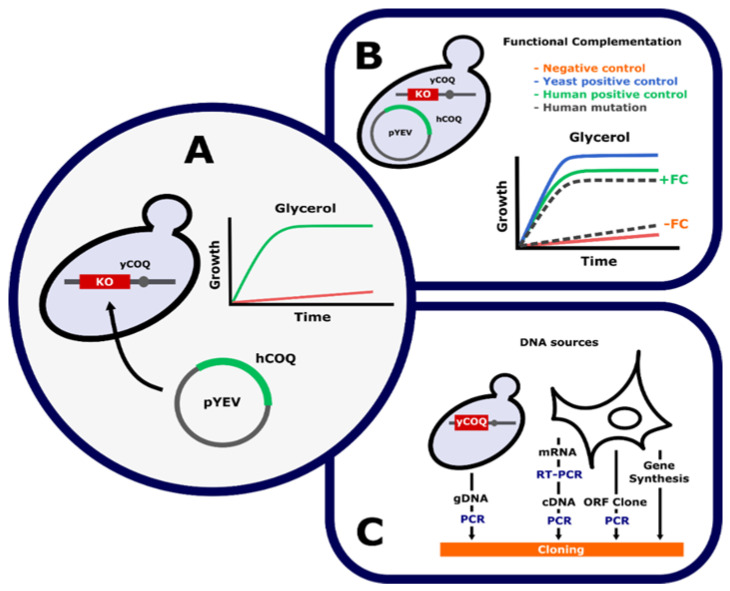Figure 1.
Functional complementation of human genes in the yeast model. Functional complementation studies can perform the functional validation of genetic variants found in patients. (A) In a functional complementation assay, the expression of the human gene (hCOQ) using a yeast expression vector (pYEV) can recover the defect (CoQ6 deficiency) in a null mutant yeast strain defective in the hCOQ orthologous gene (yCOQ). Positive complementation restores the growth of yeasts in glycerol media, a non-fermentable carbon source. (B) Functional complementation requires the presence of three controls: negative (empty vector), yeast positive (the wild-type yeast gene as control of methodology), and human positive (the human wild-type gene as a control to secure negative results). Using the same cloning and expression conditions, it should be possible to study the functionality of genetic variants found in patients. Positive growth indicates that the mutation does not affect CoQ biosynthesis, and a negative result means that the mutation affects CoQ biosynthesis and, therefore, could be responsible for the pathology. (C) Sources of DNA to build plasmids used in functional complementation assay, from yeast and human cells.

